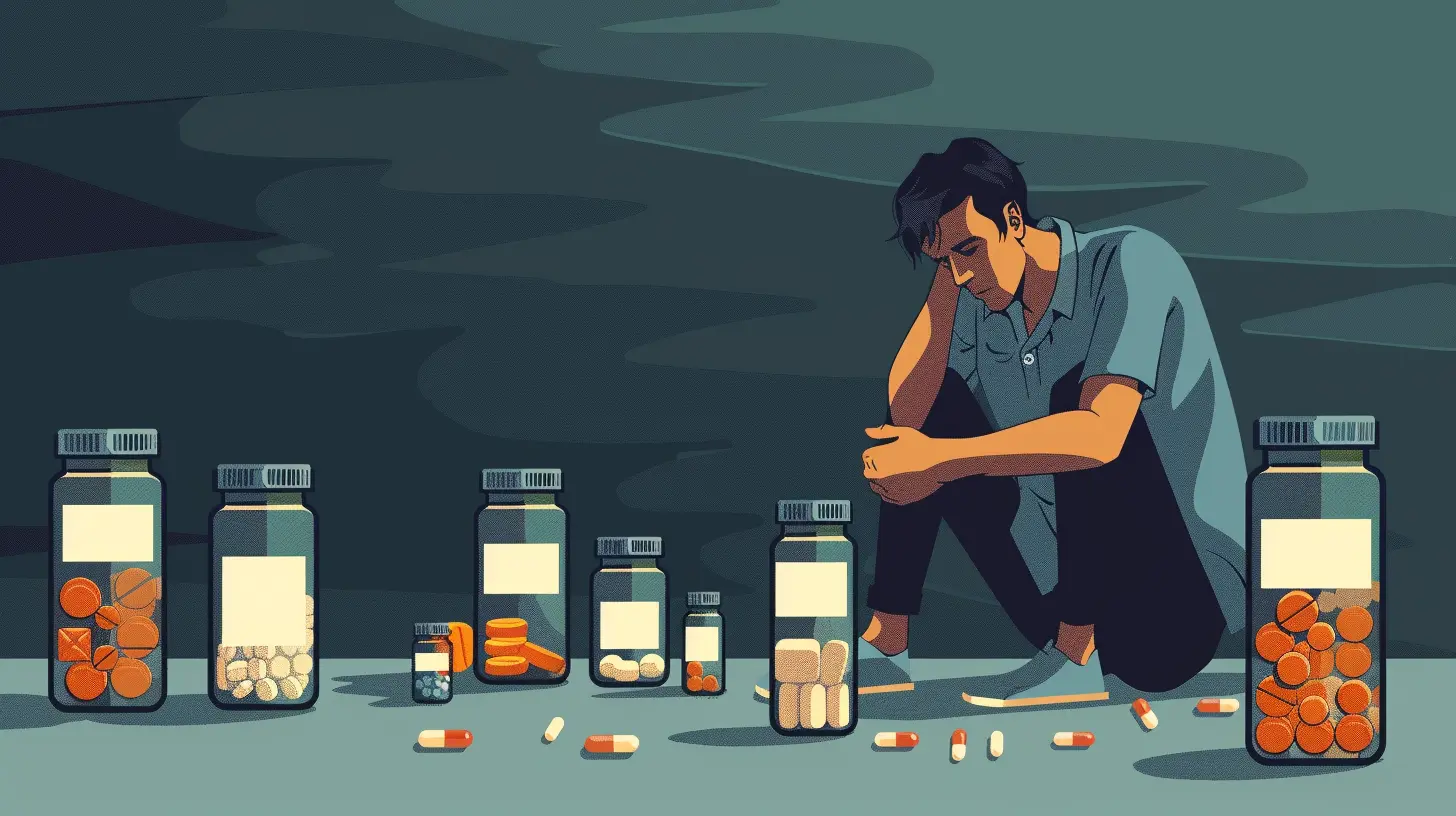How to Support a Loved One Struggling with Addiction
9 July 2025
Addiction. It’s a word that carries weight. For many, it brings back memories, pain, confusion—or maybe all of the above. What do you do when someone you love is lost in the grip of something so destructive? Helplessness creeps in. You want to help, but nothing seems to work.
You’re not alone. And more importantly, there is hope. In this article, we’re going to talk about how to support a loved one struggling with addiction — not with lectures or judgment, but with compassion, patience, and a touch of courage.

Understanding the Beast: What Is Addiction, Really?
Let’s clear one thing up—addiction isn’t just a bad habit, and it sure as heck isn’t a choice people make for fun. Addiction is a disease. Yep, just like diabetes or heart disease. It rewires brain chemistry, hijacks decision-making processes, and feeds off shame and secrecy.Think of addiction like quicksand. The more someone struggles alone, the deeper they sink. They may know they’re in trouble, but they can’t climb out on their own. That’s where you come in—not to yank them out, but to toss them a rope and hold tight.

The Silent Scream: Spotting the Signs of Addiction
Sometimes, addiction doesn’t look like it does in the movies. There’s no dramatic spiral or obvious meltdown. It can slip in quietly, masked by excuses and half-truths.Here are a few red flags:
- Disappearing for long periods
- Sudden mood swings or increased irritability
- Financial problems that “don’t add up”
- A noticeable decline in personal hygiene or appearance
- Isolation from friends and family
- Frequently lying or being secretive
Your gut might already be telling you something’s off. Trust it. But rather than jump to conclusions, observe, gather your thoughts, and prepare to approach the situation with care.

Step One: Check Yourself Before You Wreck Yourself
Before you talk to your loved one, you need to do a little inner work. Supporting someone with addiction isn't easy. It's a roller coaster of emotions, and if you're not grounded, you risk getting dragged into the chaos.Ask yourself:
- Am I trying to control or support them?
- Am I reacting out of fear or responding with love?
- Am I prepared for pushback—or even rejection?
You can’t pour from an empty cup. Make sure you’re emotionally equipped to handle tough conversations without taking things personally. Boundaries? You’ll need them. Patience? Stockpile it. Support for yourself? Absolutely essential.

Talk, Don’t Lecture: Starting the Conversation
Okay, this is the part that makes most people nervous. How do you even bring this up without causing an explosion?Here's one thing to remember: the goal isn’t to accuse, criticize, or guilt-trip. It’s to open the door for connection.
Try something like:
> “Hey, I’ve noticed you haven’t seemed like yourself lately. I’m worried about you. If something’s going on, you can talk to me.”
Keep it casual, non-threatening, and full of curiosity rather than judgment. And if they deny it? Don’t argue. Just let them know you're there when they’re ready. Plant the seed—they might circle back later.
The Tightrope Walk: Balancing Support and Enabling
Here’s where things get tricky. You want to help. But sometimes, what feels like helping can actually be enabling.Let’s break it down:
- Support is offering emotional encouragement, helping them find treatment, or driving them to a meeting.
- Enabling is giving them money, covering up their actions, or making excuses for them.
Think of enabling like giving someone an umbrella in the middle of a storm they caused—sure, you’re shielding them for now, but they’ll never learn to weather it on their own.
Set clear, healthy boundaries. For example:
> “I love you, and I’m here to support your recovery. But I can’t give you money or bail you out anymore.”
It might feel cold, but it’s actually an act of love. You're standing firm because you believe they can rise, not because you’re giving up on them.
Don’t Play Therapist: Encourage Professional Help
Look, unless you’re a licensed counselor, you shouldn’t try to DIY their recovery. Addiction is deep-rooted and complicated, and it often comes with emotional baggage like trauma, depression, or anxiety.Encourage them to seek professional help—therapy, rehab, support groups, or all of the above. Offer to help them explore options, but don’t force it. The decision to get help has to come from them.
And if they resist? Don’t lose hope. Recovery is often a process of starts and stops. Be patient. Keep the lines of communication open.
The Power of Listening: Be Their Safe Space
Sometimes, the most powerful thing you can do isn’t talk—it’s listen. Really listen.Let them vent. Let them cry. Let them be angry. Your job isn’t to solve everything. It’s to be present, to validate their feelings, and remind them they’re not alone.
Think back to a time when you felt broken. Did you want advice? Or did you just want someone to sit with you in the darkness?
That’s what they need—someone who won’t flinch at their truth.
Educate Yourself: Knowledge Is Compassion
If you want to truly support your loved one, get informed. Learn about the type of addiction they’re facing—whether it’s drugs, alcohol, gambling, or something else.Find out how addiction affects the brain, what withdrawal looks like, and what recovery entails. The more you know, the less room there is for fear and misunderstanding.
Books, podcasts, TED Talks, blogs—so many resources are at your fingertips. And honestly, the more you understand, the better you’ll be at navigating this storm.
Practice Tough Love (Without the Drama)
Here’s a truth bomb: loving someone doesn’t always mean saying “yes.” In fact, loving someone with an addiction often means saying “no” more than you’d like.Tough love isn’t about punishment—it’s about reality. It’s saying, “I care too much to watch you destroy yourself.”
It might mean refusing to lie for them. Or not inviting them over until they’re sober. Or calling for help if things spiral too far.
It hurts. But sometimes, pain is the wake-up call they need.
Don’t Go It Alone: Build Your Support Squad
You need allies. Period.Reach out to support groups like Al-Anon or Nar-Anon. These are safe spaces for people just like you—folks walking the same path, facing the same heartache.
Therapy can help, too. Even a few sessions can give you tools to cope, set boundaries, and process your emotions.
Remember, this isn’t just their battle—it’s yours, too. And you don’t have to fight it solo.
Celebrate the Little Wins
Recovery isn’t a straight shot. It’s a winding road with potholes, detours, and flat tires.So celebrate the small victories—a week sober, a therapy appointment, a hard conversation they didn’t run from. Every step forward matters.
And if they relapse? It’s okay. Don’t panic. Don’t shame. Just help them get back on track. Relapse isn’t failure—it’s part of the process.
Keep the Faith, But Manage Expectations
Supporting someone with addiction requires a weird blend of hope and realism. You’ve got to believe in their ability to change—even when they don’t—while also protecting your own peace of mind.They might change. They might not. You can be part of the journey, but you can’t write the ending for them.
All you can do is love them, guide them, and take care of yourself in the process.
Final Thoughts: Light in the Darkness
Loving someone with an addiction can feel like standing in a dark tunnel, unsure if there’s a way out. But there is. It might not be fast or easy, but it’s possible.Your support can be the lifeline they need—steady, patient, unwavering. You can be their mirror, reflecting back their strength when they forget it. And even in the messiness, there’s beauty. There’s connection. There’s healing.
Keep showing up. Keep loving fiercely. And don’t forget—you deserve support, too.
all images in this post were generated using AI tools
Category:
AddictionAuthor:

Jenna Richardson
Discussion
rate this article
2 comments
Icarus Kearns
Supporting a loved one with addiction involves compassion, active listening, and patience. Encourage professional help, set boundaries, and be a consistent source of love and understanding.
December 17, 2025 at 5:34 PM
Elias McKinney
“Supporting a loved one with addiction is like being their emotional GPS—recalculating routes and avoiding roadblocks while reminding them to take the scenic route (preferably one without gas stations of temptation)!”
July 23, 2025 at 3:25 AM

Jenna Richardson
Thank you for such a creative analogy! Supporting a loved one with addiction truly involves navigating challenges together and encouraging healthier paths.


